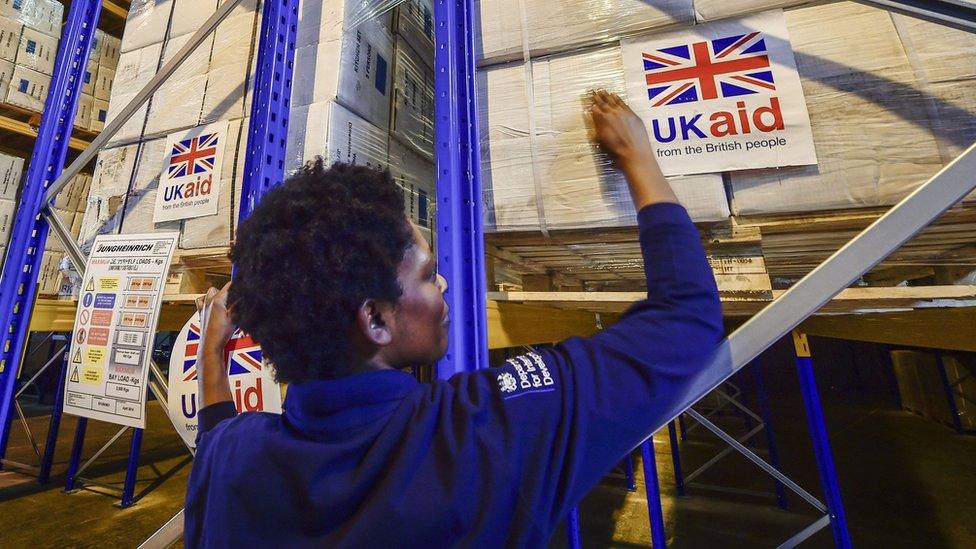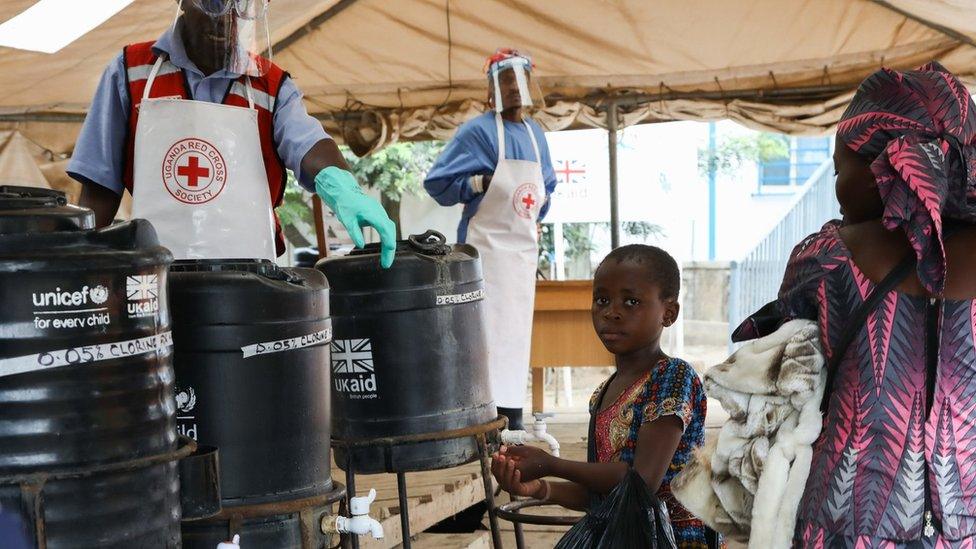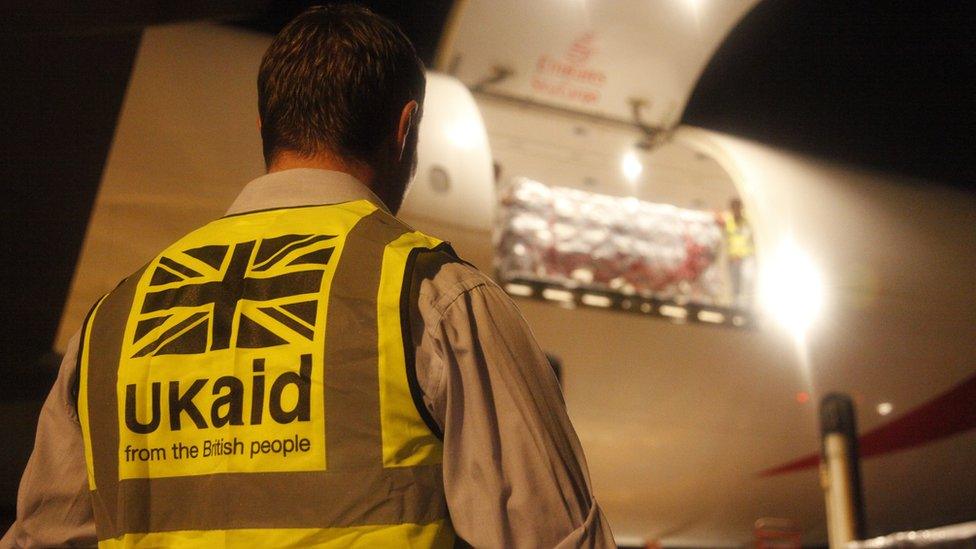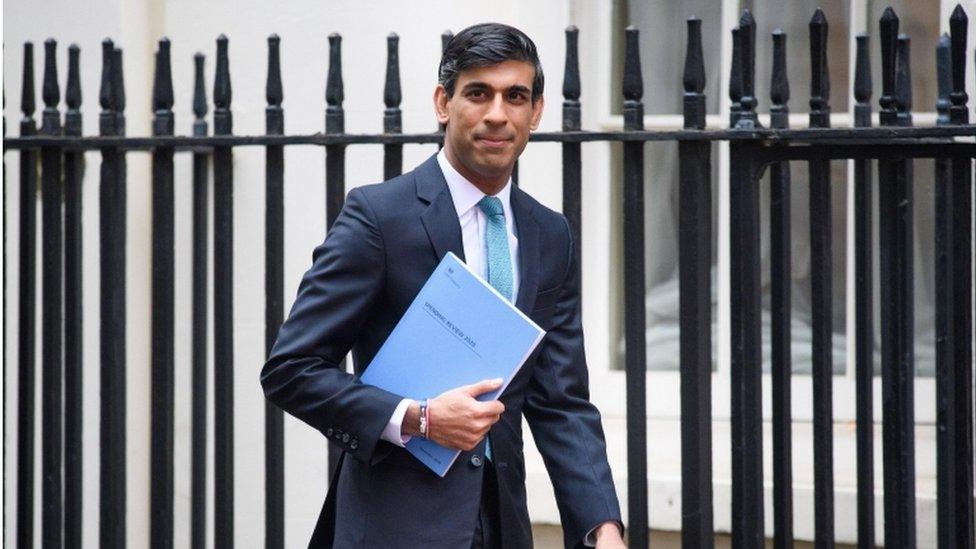Foreign aid: What is it and why are people talking about it?
- Published
- comments

The government is cutting Britain's foreign aid budget.
Foreign aid is when richer countries give resources to poorer countries in order to help them.
Until today's announcement, the United Kingdom gave £15 billion pounds a year to other governments, that's 0.7% of the amount the whole country earns in a year.
However, the Chancellor of the Exchequer, Rishi Sunak, has changed this to 0.5%, which will save the UK government £4 billion pounds a year.
The Chancellor is in charge of how the UK spends and saves its money. So why is Mr Sunak's decision a big deal? And what is foreign aid?
What is foreign aid?

UK aid is distributed with the aim of protecting public health and getting rid of global poverty
Foreign aid is when richer countries give resources to poorer countries in order to help them.
It can involve transferring things like food, military equipment, and people to provide training and medical help.
Aid could also be advice on farming methods, help with clean water and building places like schools.
An example of aid is when the United Kingdom gave £230 million to countries in West Africa to help stop the spread of Ebola.
There are different types of aid provided by countries, such as emergency aid which is provided in the short-term after sudden disasters like earthquakes or tsunamis.
Long term aid is focused more on providing local communities with education and skills in poorer countries.
What are the different positions on foreign aid?

There are lots of views on the pros and cons of providing foreign aid to countries.
Some people think the UK shouldn't be helping people abroad while there are people struggling at home during the coronavirus pandemic.
They say that the problems of poverty and inequality abroad are brought on by conflict and government corruption.
In this view, some people think foreign aid is worthless because it doesn't make it to the people who need it most.
However, other people say foreign aid from the UK is really important because it helps narrow the difference in wealth between rich countries and less developed countries.
It can be used to help educate and train people to gain skills in less developed countries and in some cases save their lives.
Why is the UK government reducing its foreign aid?

Chancellor of the Exchequer Rishi Sunak delivered the news during the annual one year spending review in the House of Commons
The UK government has been giving 0.7% of its annual income to foreign aid as part of an agreement signed in 2015.
However, the Chancellor of the Exchequer, Rishi Sunak, has put forward plans for this to be reduced to 0.5% in his annual one year spending review in the House of Commons.
The UK - like other countries around the world - has been badly hit financially by the coronavirus pandemic.
Rishi Sunak said that because of coronavirus, the UK is spending a lot more money elsewhere, and that we still spend more than other wealthy countries.
He wants to save money where he can, and this means cutting the foreign aid budget.
He said he will change it back to 0.7% when the UK's finances improve.
What have other people said?
Not all politicians agree with Mr Sunak's decision.
The Scottish National Party said cutting back "while the world struggles in a Covid pandemic is just cruel".
And the chief of Charities Aid Foundation said Mr Sunak's decision will "undermine the UK Government's commitment to the world's most vulnerable people".
The Development Studies Association, a group who look into development around the world, wants the government to keep the spend at 0.7%. They say that other countries will need help with coronavirus vaccinations, and that we should be the ones to help.
So what do you think? Is now the right time for the UK to spend less on foreign aid? Have your say in our vote - and tell us what you think in the comments.
If you can't see this vote, click here.
- Published26 November 2020

- Published25 November 2020

